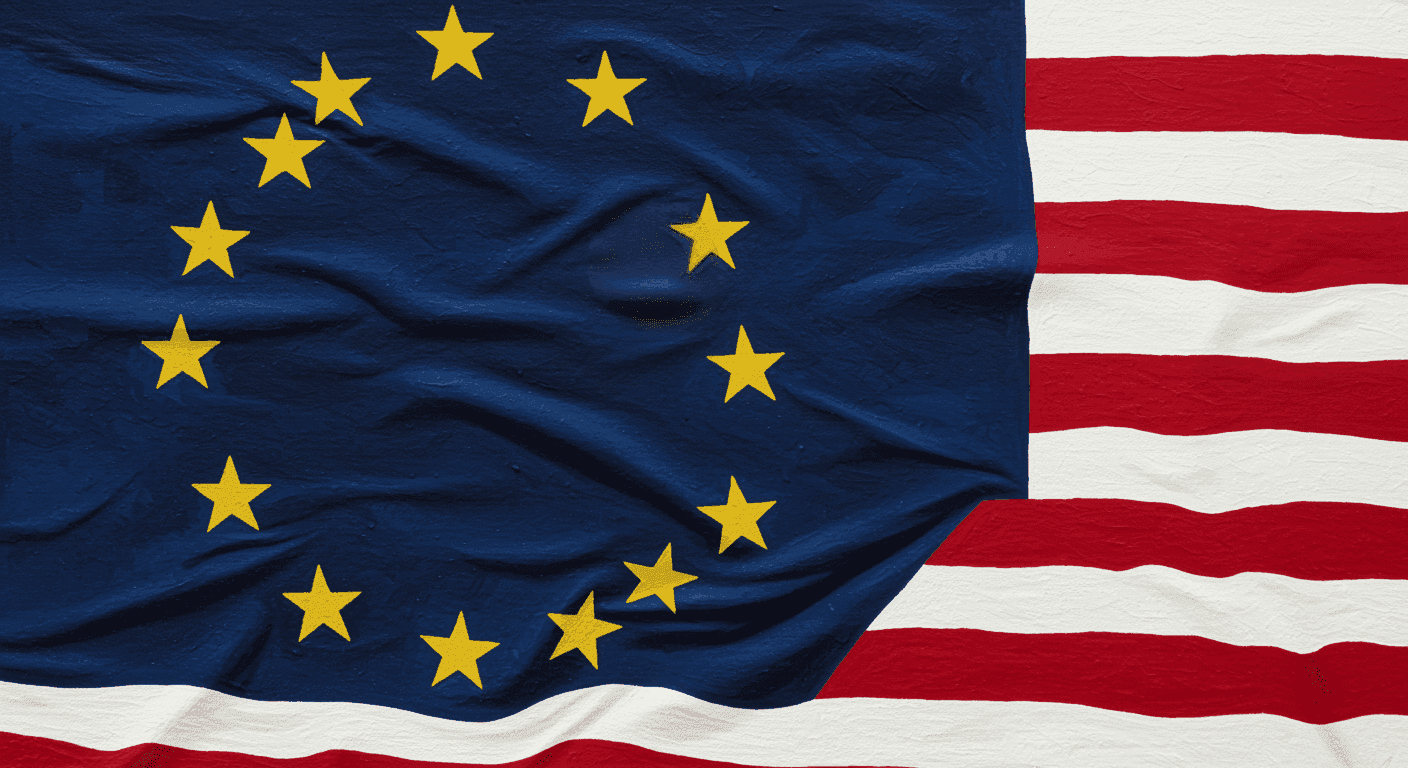
U.S.–EU Reset Leads Week as Enforcement and AD/CVD Actions Intensify
NEWSLETTER | Trade Insight AI
U.S.-EU trade framework: EU scraps industrial tariffs, 15% U.S. floor
STR Trade Report • August 22, 2025
Announced Aug. 21, the U.S.-EU framework would eliminate EU tariffs on all U.S. industrial goods and grant TRQ-based preferences to a range of U.S. agri-foods, while the U.S. applies the higher of MFN or a 15% combined rate to EU goods, with MFN-only treatment for aircraft, cork and generics starting Sept. 1. Section 232 auto tariffs would fall to a 15% combined rate once the EU tables implementing legislation—potentially retroactive to Aug. 1—amid parallel work on rules of origin, mutual recognition of auto standards, export controls and investment screening. The package is paired with major EU commitments to procure $750B in U.S. energy and at least $40B in AI chips and with an expected $600B in EU investment in U.S. strategic sectors through 2028, signaling near-term planning implications for autos, energy, semiconductors and agri exporters.
Trade Policy & Market Access
BIS Launches Section 232 Probe; Wind Turbine Tariffs Possible
STR Trade Report •August 22, 2025
BIS has opened a Section 232 national security investigation into imports of wind turbines and components, with public comments due Sept. 9. The probe could lead to tariffs or quotas and seeks data on U.S. demand and capacity, import concentration and reliance on major exporters, foreign subsidies and price suppression, supply‑chain control/weaponization risks, and the feasibility of expanding domestic production. Importers and project developers should assess cost and sourcing exposure and consider submitting detailed input.
U.S. Tariff Escalation Roils India, Brazil as AfCFTA Stalls
STR Trade Report •August 21, 2025
U.S.–India tensions escalated as August trade talks were called off and a new 25% tariff on Indian goods, effective Aug. 27, pushes duties on some products to 50%. India temporarily suspended duty on raw cotton (HS 5201) imports from Aug. 19–Sept. 30, creating a short-term opening for U.S. suppliers. Brazil is pushing back against a U.S. trade-practices probe tied to newly imposed 50% tariffs that exempt roughly 700 items, while AfCFTA implementation remains slow amid infrastructure and customs gaps—signaling continued pricing and compliance uncertainty across key emerging markets.
Nepal Ratifies WTO Fisheries Subsidies Deal; Only Three Left
WTO Latest News •August 18, 2025
On 18 August, Nepal deposited its acceptance of the WTO Agreement on Fisheries Subsidies, bringing total ratifications to 108—three short of the 111 (two‑thirds) needed for entry into force. The pact bans subsidies tied to IUU fishing, overfished stocks, and unregulated high‑seas fishing, and its technical assistance fund is accepting proposals from ratifying developing and least-developed members until 9 October. Trade and fisheries authorities should prepare for imminent implementation and leverage funding opportunities as negotiations continue on additional disciplines.
China challenges Canada’s steel TRQs, aluminium surtaxes at WTO
WTO Latest News •August 20, 2025
China has requested WTO consultations with Canada over measures imposing a surtax via tariff‑rate quotas on certain steel imports from non‑FTA partners, including China, and a separate surtax on certain steel and aluminium goods that incorporate Chinese‑origin inputs. The request, circulated 20 August, triggers a 60-day window for talks before China can seek a dispute panel. The outcome could affect pricing and market access for steel and aluminium supply chains serving Canada and clarify how WTO rules apply to TRQs and origin-based component measures.
Enforcement & Compliance Heat
DOJ Secures $12.4M Settlement over China Quartz AD/CVD Evasion
STR Trade Report •August 22, 2025
A U.S. company and its president agreed to pay $12.4 million to resolve False Claims Act allegations that they evaded antidumping and countervailing duties on Chinese quartz surface products by misclassifying them as lower‑duty goods like marble or crystallized glass and failing to ensure duties were paid, including by third‑party importers of record. Brought by a whistleblower, the case is at least the fourth such penalty in recent months and signals accelerating trade‑related FCA enforcement under the Trump administration. Importers should reassess product classification, supplier controls, and AD/CVD payment processes given rising exposure to civil liability and recovery actions.
U.S. Adds Steel, Copper, Lithium, Caustic Soda to UFLPA Priorities
STR Trade Report •August 20, 2025
DHS expanded UFLPA enforcement priorities to include steel, copper, lithium, caustic soda, and red dates, widening scrutiny beyond apparel, polysilicon, aluminum, PVC, and seafood. The Forced Labor Enforcement Task Force will prioritize these sectors for actions—including Entity List additions (now 144, up 78 in the past year), detentions, export limits, sanctions, and visa restrictions—elevating exclusion risk for upstream-linked goods. Importers should intensify due diligence and supply-chain tracing for these inputs to rebut the presumption and avoid disruptions.
CBP uncovers $400M duty evasion; record EAPA case hits 23 importers
CBP Media Releases •August 15, 2025
From Jan. 20 to Aug. 8, 2025, CBP’s EAPA investigations identified more than $400 million in unpaid AD/CVD and flagged 89 cases with reasonable suspicion of evasion. The agency also disclosed its largest EAPA action to date—a consolidated probe of 23 U.S. importers and Chinese shell networks routing goods through Indonesia, South Korea, and Vietnam—identifying over $250 million owed and rising after field verifications in Indonesia and Taiwan. Expect intensified scrutiny of origin claims and transshipment risks, raising compliance exposure across AD/CVD-sensitive supply chains.
State Debars 17 for AECA Violations; ITAR Activities Banned
STR Trade Report •August 22, 2025
Effective Aug. 19, the State Department imposed statutory debarment under the ITAR on 17 individuals convicted of violating or conspiring to violate Section 38 of the Arms Export Control Act, prohibiting any participation in defense trade, including brokering, exports, temporary imports, and handling technical data or services. Exceptions may be granted only case-by-case for overriding U.S. foreign policy, national security, or law-enforcement interests; debarment generally lasts three years from conviction, and reinstatement can be requested no earlier than one year after debarment. ITAR-regulated companies should promptly screen counterparties and ensure no transactions involve these debarred persons.
DOJ Imposes 30-Month Sentence for Russia-Linked Export-Control Evasion
STR Trade Report •August 21, 2025
A dual U.S.–Russian national was sentenced to 30 months in prison and ordered to forfeit $75,547 for conspiring to violate the Export Control Reform Act, bank fraud, and defrauding the U.S. DOJ says he worked with Moscow-based procurement firms to build shell companies and U.S. bank accounts that illegally acquired and exported highly sensitive dual-use electronics for Russian military and intelligence applications, including nuclear, hypersonic, and quantum technologies. The case signals continued aggressive enforcement of Russia-related export controls; exporters and financial institutions should tighten end‑use screening and scrutinize shell‑company purchasing and payment patterns in dual‑use electronics.
Trade Remedies & AD/CVD Spotlight
AD/CVD Roundup: China fencing deposits, OCTG circumvention, zero‑margin citric acid
STR Trade Report •August 21, 2025
Commerce and the ITC announced multiple trade remedy actions: a zero dumping margin in the Thailand citric acid review (7/1/23–6/30/24) and a finding that Korea’s Dongkuk Coated Metal is not the successor to Dongkuk Steel Mill under the corrosion‑resistant steel CVD order. For temporary steel fencing from China, Commerce preliminarily set AD cash deposits of 136.57–187.69% and found critical circumstances in part, creating retroactive duty exposure. The ITC issued final affirmative AD and CVD injury determinations on hexamethylenetetramine from China, and Commerce preliminarily found circumvention for OCTG finished in Thailand from Chinese billets, with CBP to suspend liquidation and collect AD/CVD deposits for entries on or after Dec. 18, 2024.
AD/CVD Roundup: Up to 921% CVD deposits; plate circumvention probes
STR Trade Report •August 22, 2025
Commerce issued preliminary CVD determinations imposing cash deposits of 59.17%–921.42% on fiberglass door panels and 199.6% on polypropylene corrugated boxes from China, while the ITC delivered final affirmative injury findings on tungsten shot from China. Commerce also launched country‑wide circumvention inquiries into paper plates completed in Cambodia or Malaysia using Chinese paperboard, and preliminarily found a zero dumping margin in the 2023–24 review of Belgian citric acid. Importers face immediate deposit exposure on affected goods and potential expansion of plate orders to third‑country processing.
USITC Keeps China Cabinet AD/CVD Orders After Expedited Sunset Review
USITC News Releases •August 21, 2025
The USITC found that revoking antidumping and countervailing duty orders on wooden cabinets and vanities from China would likely lead to continued or recurrent material injury, and therefore kept the measures in place following expedited five‑year (sunset) reviews prompted by inadequate respondent participation. Importers and downstream buyers should plan for AD/CVD cash deposits and duty exposure to continue into the next five‑year period; the Commission’s public report is expected by October 3, 2025.
Related News

July 22, 2025
Trade Policy, Enforcement, and Supply Chain in Flux: July 2025 Insights
Read more →
October 2, 2025
Complexities of USMCA Validation in the Pharmaceutical Industry
Read more →
September 12, 2025